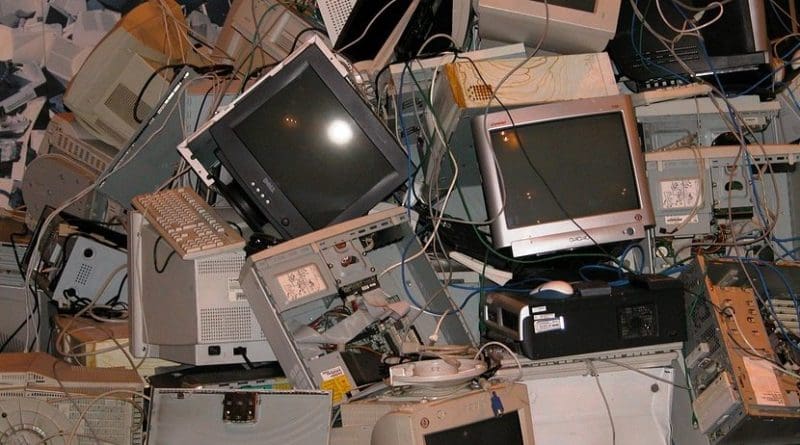Electronic Waste: The $62 Billion Opportunity Of Thrown-Away Electronics
The world is on the brink of a major health and environmental crisis, as the annual amount of electronic waste produced each year looks set to grow from close to 50 million tonnes today to 120 million tonnes by 2050. With only 20% of the electronics and plastics formally recycled each year, this looming health and environmental catastrophe also represents a unique $62 billion economic opportunity. This is the finding of a report, A New Circular Vision for Electronics, published by the World Economic Forum in collaboration with the UN-E-waste Coalition.
The current volume of annual production, at almost 50 million tonnes, is more in weight terms than every commercial airliner ever built combined. It is also three times more valuable than the total output of the world’s silver mines.
To safeguard the environment, protect human health and deliver sustainable, inclusive growth, the Nigerian government, Global Environment Facility (GEF) and UN Environment have joined Dell, HP, Microsoft and Philips to launch a $15 million investment to create a formal e-waste recycling industry in Nigeria.
The partnership is convened on the World Economic Forum’s Platform for Accelerating the Circular Economy. Funding comprises a $2 million GEF investment, which will be leveraged for an additional $13 million private-sector co-financing. With 100,000 people estimated to be informally working in the e-waste sector in Nigeria alone, the investment will not only unlock economic growth, but also provide safe and decent employment for workers.
At a global level, seven UN entities have come together, supported by the World Economic Forum and the World Business Council for Sustainable Development to better address the e-waste challenge. In the joint report, they call for a new vision for electronics based on the circular economy, and the need for collaboration with major brands, small and medium-sized enterprises, academia, trade unions, civil society and associations in a deliberative process to change the entire system.

